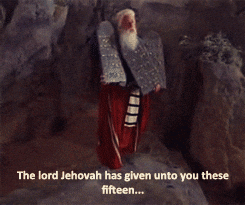Charles Waddell Chestnut's The Passing of Grandison and Paul Lawrence Dunbar's An Ante-Bellum Sermon both display two extremely different viewpoints of slavery in the South while also encapsulating similar portrayals of trickster figures that manipulate the masses with colorful language, sharp intuition and ingenuity, as well as the stereotypes slavery has created in American society.
The language that's used by Dick Owens as well as the speaker in An Ante-Bellum Sermon elicits a certain response from the people they speak to. For example, in Dunbar's writing the speaker states
"Dat I's preachin' discontent.
'Cause I isn't; I'se a-judgin'
Bible people by dier ac's..."
We kin hyeah his feet a-trompin'"
'Cause I isn't; I'se a-judgin'
Bible people by dier ac's..."
The narrator is aware of his audience's stance as Christians and capitalizes on this by referencing the morality of the Bible as well as questioning those that follow it who promote slavery. The same manipulative use of language and suggestion is witnessed in The Passing of Grandison when Owens approaches his father to request permission to travel north and bring a slave companion. Owens begins the conversation. "'Father', he remarked casually to the colonel, over the fried chicken, 'I'm feeling a trifle run down. I imagine my health would be improved somewhat by a little travel and change of scenery.'" His father then suggests traveling to the north, unaware of Owens suggestion desiring him to propose such a solution. Owens is now sure his father won't be suspicious of the location, for he chose it himself. Both characters are able to use language as power in persuading people and aiding in their goals.
Owens and the speaker in An Ante-Bellum Sermon also play on stereotypes and assumptions of culture. Owens does this more blatantly and brash when the writing mentions him "having ascertained from a city directory the addresses of several well-known abolitionists, he wrote them each a letter" anonymously, infuriated at the arrival of southerner with a slave in the free city of Boston and requesting help in rescuing a "fellow-man from bondage..." Dick Owens is clearly taking advantages of stereotypes of the culture, fully aware of the abolitionist nature to assist in freeing an enslaved man while also aware of Grandison's unwillingness to escape. The narrator in An Ante-Bellum Sermon displays this same play on stereotypes when alluding to the biblical figure of Moses fully aware that this powerful character who liberated a race will surely take strong effect amongst his listeners, stating
"But de Moses is a-comin',
An' he's comin', suah and fas'We kin hyeah his feet a-trompin'"

One of the most important portrayals of the trickster through both of these stories however, is the use of intuition and ingenuity to win, rather than strength. The preacher of The Ante-Bellum Sermon accomplishes this by crafting a harsh criticism of Southern Christians who endorse slavery, speech of discontent, and prediction of soon deliverance of liberation into a church sermon that focuses mainly on religion, guising itself as a Sunday sermon rather than these vile concepts to white southerners at the time. The same can be witnessed in The Passing of Grandison as Dick Owens conjures up a multitude of plans to free Grandison instead of finding a slave truly seeking freedom and aiding him, using intellect rather than brute strength to achieve his goals.
Another character I consider a trickster figure is Richard Pryor in the 1976 film Silver Streak which chronicles the adventures of a novelist as he constantly gets kicked off a cross country train while trying to save a woman he's fallen for. When the George Caldwell, the novelist, arrives in Kansas City, he meets Grover Muldoon (Pryor's character) who's an African American car thief. Muldoon is able to help Caldwell get back on the train through his use of colorful language that distracts, as well as his plays on racial stereotypes. A pivotal example of this can be witnessed in the famous scene when Muldoon pulls Caldwell into the bathroom and disguises him as African American to avoid police who're pursuing him.

Comments
Post a Comment